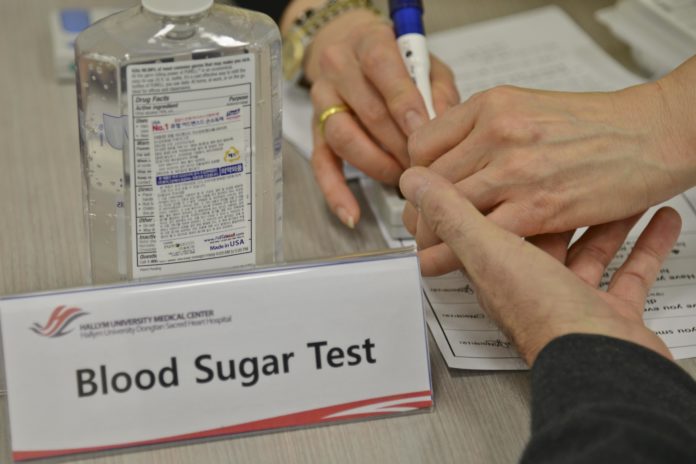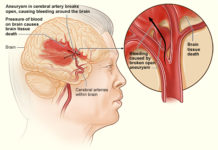
New research shows dapagliflozin can be used to treat heart failure in patients with and without diabetes
Dapagliflozin is one of the relatively new class of diabetes drugs called Sodium-glucose cotransporter 2 (SGLT-2) inhibitors. Dapagliflozin is already in use to treat type 2 diabetes (T2D) and prevent the development of heart failure. This study emphasizes that dapagliflozin can also be used to treat pre-existing heart failure, even in patients without T2D.
Findings were presented at this year’s Annual Meeting of the European Association for the Study of Diabetes (EASD) in Barcelona, Spain, and simultaneously published in the New England Journal of Medicine (NEJM).
“The most important finding of all is the benefit in patients without diabetes,” explained study author, Professor John McMurray, Professor of Cardiology at the Institute of Cardiovascular and Medical Sciences, University of Glasgow, UK. “This shows dapagliflozin is truly a treatment for heart failure and not just a drug for diabetes.”
Heart failure occurs when the heart is no longer able to pump blood around the body as well as it should. In patients with heart failure, the percentage of blood pumped out by the left ventricle per heartbeat (called the ejection fraction) goes down. Certain conditions, such as coronary artery disease (narrowed arteries in the heart) or high blood pressure gradually leave your heart too weak or stiff to fill and pump efficiently. The prevalence of heart failure in people with T2D is around double than in the general population without diabetes.
In this new study, the investigators analysed whether the drug could also be used to treat patients with T2D in whom heart failure had already developed (established heart failure), and also heart failure in patients without type 2 diabetes.
The trial (the DAPA-HF study) enrolled 4,744 patients with heart failure and reduced ejection fraction in 20 countries, of whom 45% had T2D, and 55% did not have T2D. Patients were randomly allocated to either dapagliflozin 10 mg once daily or matching placebo. The primary endpoint was a combination of a first episode of worsening heart failure (hospitalisation for heart failure or an urgent heart failure visit requiring intravenous therapy) or death from cardiovascular causes.
the primary outcome occurred in 386 of 2,373 patients (16.3%) in the dapagliflozin group and in 502 of 2,371 patients (21.2%) in the placebo group, translating to a 26% reduced risk in the dapagliflozin group
In the study, 94% of patients received an angiotensin-converting enzyme (ACE) inhibitor or angiotensin receptor blocker or angiotensin receptor-neprilysin inhibitor; 96% took a beta-blocker; and 71% took a mineralocorticoid receptor antagonist (all these are drugs that reduce hospital admissions and death rates in heart failure), thus this new study was adding dapagliflozin or placebo to the currently best-available therapies.
The researchers found that, over a median follow-up of 18.2 months, the primary outcome occurred in 386 of 2,373 patients (16.3%) in the dapagliflozin group and in 502 of 2,371 patients (21.2%) in the placebo group, translating to a 26% reduced risk in the dapagliflozin. The results were similar in the groups with T2D and without T2D.
A total of 237 patients (10.0%) receiving dapagliflozin and 326 patients (13.7%) receiving placebo experienced a first episode of worsening heart failure, thus showing a 30% reduced risk in the dapagliflozin group. And 227 (9.6%) and 273 (11.5%), respectively, died from cardiovascular causes, meaning an 18% lower risk in the dapagliflozin group. All-cause mortality was reduced by 17%. Symptoms, as assessed by the Kansas City Cardiomyopathy Questionnaire were also improved.
Adverse event related to volume depletion (which can cause dehydration, low blood pressure and fainting) and kidney dysfunction showed no difference between the two groups. Major hypoglycaemia and lower limb amputation and fracture were infrequent and occurred at similar rates in the two treatment groups.
Professor McMurray concluded: “The trial shows that dapagliflozin reduces death and hospitalisation, and improves health-related quality of life, in patients with heart failure and reduced ejection fraction, with and without diabetes. The clinical implications are potentially huge – few drugs achieve these results in heart failure and dapagliflozin does even when added to excellent standard therapy.”
Other benefits of SGLT-2 inhibitors include promoting weight loss, reducing blood pressure and reducing the risk of cardiovascular mortality.













